Conscious Fashion with Purpose, Creativity, and Community
A Full-Fledged Fashion Forward Phenomenon Attracting a Loyal Style Following
Over the past 21 years, ELK has grown from a humble bespoke jewelry business into one of Australia’s most respected independent fashion labels. What began as a small creative venture by husband-and-wife team Adam and Marnie has evolved into a full-fledged fashion house, known for its bold designs, accessible pricing, and unwavering commitment to ethical and sustainable practices.
Today, ELK employs more than 100 people, operates 10 retail stores across Australia, sells globally through online and wholesale channels, and has earned recognition as a certified B Corporation. Its success lies not just in striking fashion but in a business philosophy rooted in integrity, responsibility, and transparency.
From Jewelry to Fashion Label
ELK’s beginnings were intimate and craft-focused. Adam first launched the business creating bespoke jewelry pieces, building a small but loyal customer base. It didn’t take long before the couple saw an opportunity to expand, creating products that were not only distinctive but also accessible to a wider audience.
“The growth was organic,” Marnie explains. “We started experimenting with new materials and categories, and our customers trusted us to keep offering something fresh and authentic.”
From jewelry, ELK branched into leather goods, knitwear, and homewares, gradually building out a full lifestyle collection. Roughly 15 years ago, the company shifted entirely into fashion, cementing its reputation as a label that balanced originality with wearability.
Ethical Foundations and B Corp Certification
From its earliest days, ELK was determined to operate differently from many fast-fashion counterparts. The company built its reputation on design integrity, unique handwriting, and ethical production—principles that guided not just the collections but also the business decisions behind them.
Partnerships with organizations like UNICEF set ELK apart in its early years, embedding philanthropy into its brand DNA. This commitment deepened in 2024, when ELK became a certified B Corporation, achieving a score that ranked above the median for businesses of its size.
The B Corp certification process, completed in December 2024, was rigorous but rewarding. It provided a framework for ELK to evaluate and improve its practices across social and environmental performance, accountability, and transparency. “It was challenging, but it validated what we’d been striving for all along,” Marnie reflects. “It’s not a badge to wear—it’s a commitment to continuous improvement.”
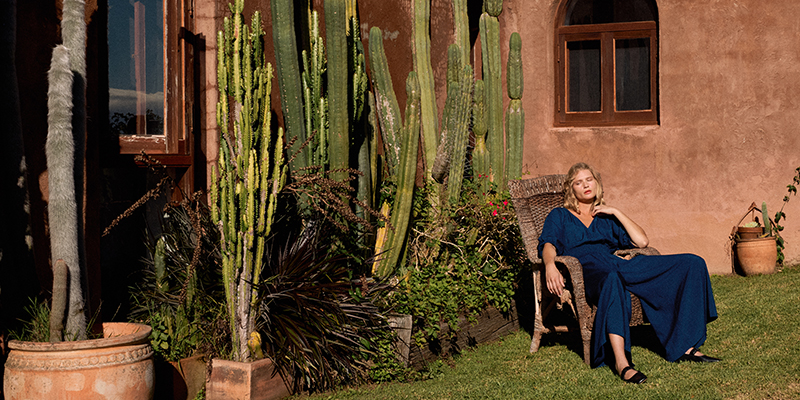
A Culture of Care and Collaboration
Inside the business, ELK has fostered a workplace culture that feels more like a family than a corporation. The team is predominantly female, with more than 100 employees who enjoy benefits like paid volunteer leave, profit sharing, and flexible arrangements.
Culture at ELK is about more than perks—it’s about empowerment. The company provides deep transparency into its supply chain, reminding employees of their shared responsibility to the environment and the communities that support the business. Staff are encouraged to contribute ideas, learn, and grow, which keeps ELK’s culture fresh and innovative.
“Our people are at the heart of everything,” Marnie says. “Happy, inspired employees create better products, better customer experiences, and ultimately a stronger business.”
Partnerships with Purpose
Collaboration has been a cornerstone of ELK’s sustainability journey. The company is a proud member of 1% for the Planet, donating one percent of annual sales to environmental causes.
Through the Tree Project, ELK directly supports reforestation efforts, funding the planting of thousands of trees while providing customers with a clear view of the impact.
ELK’s relationship with Blocketxx, a pioneering textile recycling company, represents on their most exciting partnerships. By recycling textiles at scale, ELK is addressing one of the fashion industry’s biggest challenges: waste. “Blocktexx gives us a way to be part of a larger systemic solution,” Marnie notes. “It’s not just about our brand, but about the future of fashion as a whole.”
Multi-Channel Strategy for Resilience
Like many retailers, ELK has weathered turbulent market conditions, including global economic pressures and shifts in consumer behavior. Its multi-channel strategy has been key to resilience.
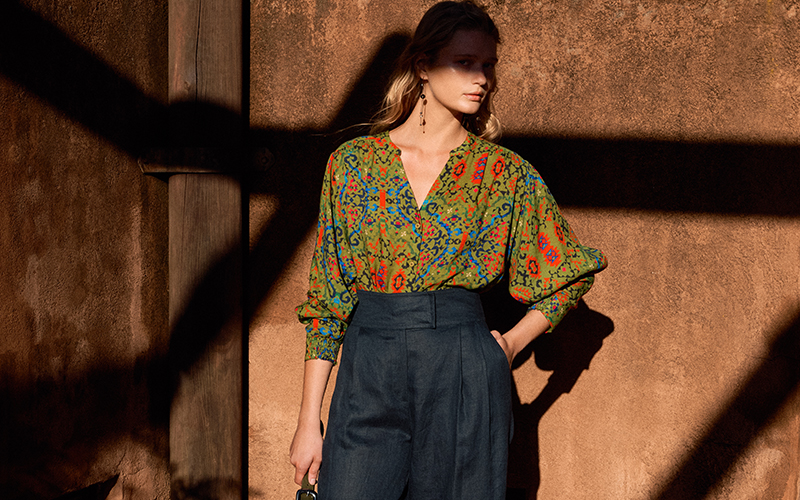
With 10 retail stores, a strong online presence, and established wholesale channels, ELK balances performance across different platforms. Retail remains the strongest performer, offering customers a tactile, immersive experience. Online sales, which surged during the pandemic, continue to provide reach but face challenges as the digital marketplace grows more crowded. Wholesale sales are declining but still valuable, especially for brand exposure.
This diversified model has allowed ELK to adapt quickly to changing market conditions. “No single channel can carry the business alone,” Marnie explains. “They support and balance each other.”
Innovation, Technology, and Sustainability
Looking to the future, ELK is focused on three priorities: innovation, technology, and sustainability. The company has already submitted its Science Based Targets initiative (SBTi) program for net-zero goals, signaling its long-term commitment to reducing emissions.
Embracing technology, ELK is exploring the use of AI tools to improve efficiency and reduce waste in areas like inventory management and design forecasting. At the same time, the brand remains committed to preserving the human creativity that defines fashion.
Sustainability goals include expanding retail presence, improving material usage, and setting realistic, science-backed targets for waste reduction and carbon neutrality.
Circular Fashion and Product Lifecycle
ELK’s Elk Renew program exemplifies its commitment to circularity. Customers are encouraged to return products for repair, relabeling, and resale, extending the life of garments and keeping them out of landfills.
The initiative reflects ELK’s belief in countering the throwaway culture that dominates much of the fashion industry. “We want people to see fashion not as disposable, but as something to treasure, repair, and reuse,” Marnie says.
The company also educates customers on basic repair skills, empowering them to reduce their own environmental impact. By promoting circular fashion, ELK is aligning sustainability with both economic practicality and environmental necessity.
Transparency and Responsibility
Transparency is central to ELK’s identity. The company shares its progress and challenges openly, publishing updates and engaging with customers and stakeholders on the realities of sustainable fashion.
Marnie is candid about the importance of avoiding greenwashing: “We don’t claim to be perfect. What we do claim is that we’re honest about the journey. Transparency builds trust, and trust builds a better industry.”
This openness also inspires other small and mid-sized businesses to pursue higher standards. By demonstrating that sustainability can coexist with commercial success, ELK hopes to drive broader change across the sector.
Profit Sharing and Collective Success
ELK’s profit-sharing scheme is another way the company reinforces its values. Each permanent team member shares in the business’s financial success, aligning personal achievement with company performance. It’s a model that fosters accountability, motivation, and pride.
“We believe everyone should feel invested in the company’s success,” Marnie explains. “When the business does well, it’s because of our people—and they deserve to share in that.”
Looking Forward
As ELK enters its third decade, the company is positioning itself for thoughtful expansion. Plans include growing its global retail footprint, continuing to innovate in sustainable materials and processes, and leveraging technology to create efficiencies without losing its creative edge.
Through it all, ELK remains grounded in the values that have guided it from the start: creativity, integrity, responsibility, and care for people and planet.
For Marnie and Adam, the journey is about more than building a successful fashion brand—it’s about building a legacy. “We want ELK to be remembered not just for what we made, but for how we made it,” Marnie reflects.
With its strong foundation, innovative spirit, and unwavering commitment to sustainability, ELK is proving that fashion can be both stylish and responsible, local and global, profitable and purpose-driven.
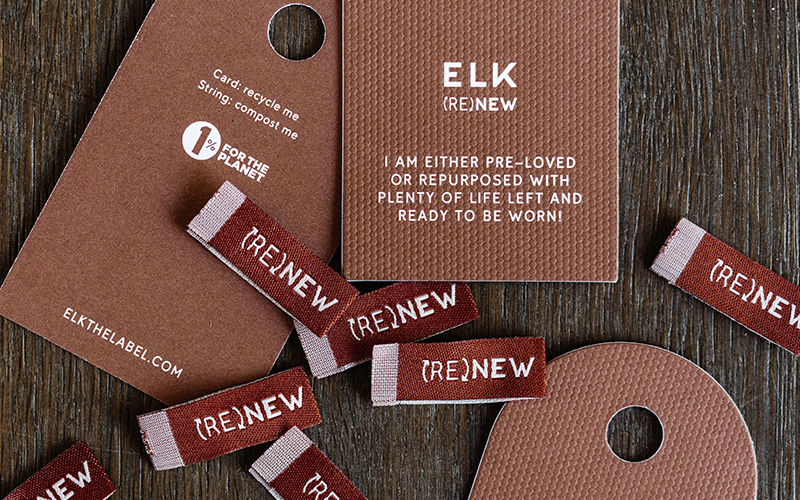
At a Glance
Who: ELK
What: Leading independent fashion brand that is has grown into a popular style choice
Where: Preston, Victoria, Australia
Website: www.elkthelabel.com
PREFERRED VENDORS/PARTNERS

Eastlink Sales Co., Ltd. – www.eastlinksales.com
Eastlink Sales connects global brands with trusted, ethically certified manufacturers across Asia-Pacific. We deliver high-quality fashion products with a strong commitment to sustainability and responsible sourcing.

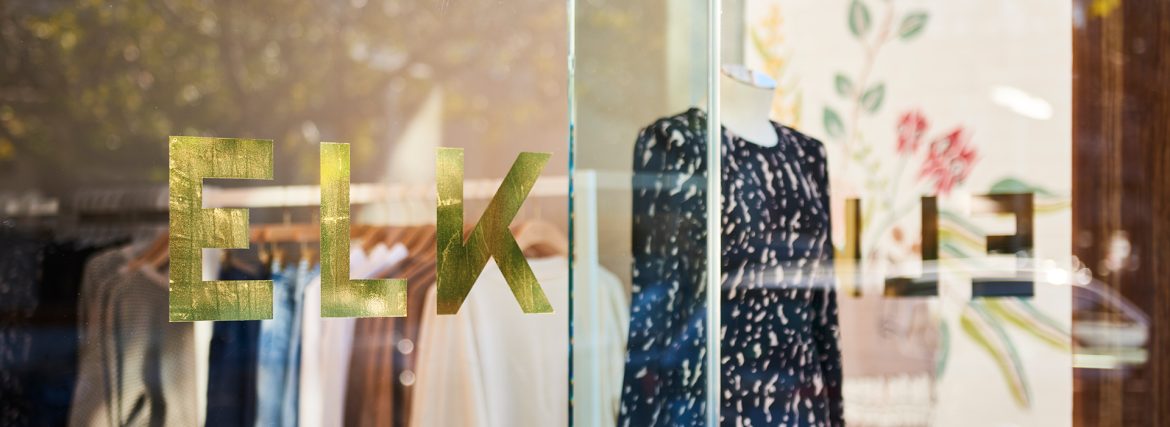

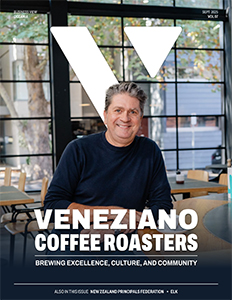
 This information will never be shared to third parties
This information will never be shared to third parties